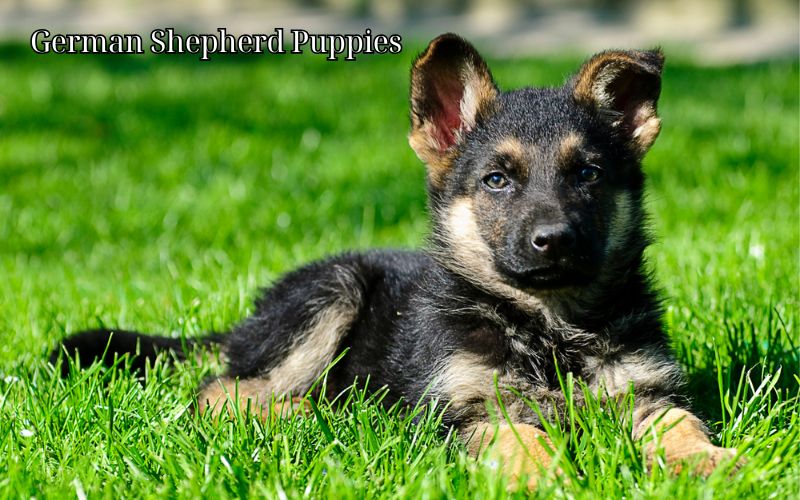German Shepherds are one of the most beloved dog breeds worldwide. Renowned for their intelligence, loyalty, and versatility, German Shepherd puppies are a perfect choice for families, individuals, and even professional handlers. In this article, Affenpinscheraz.com will explore everything you need to know about raising German Shepherd puppies, from their temperament to training, health care, and more.
A Brief History of German Shepherds
German Shepherds were first bred in the late 19th century by Captain Max von Stephanitz in Germany. The breed was designed to work as herding dogs but quickly became popular for their exceptional trainability and adaptability. Today, German Shepherds are commonly seen as police dogs, service animals, and family pets.
Why Choose a German Shepherd Puppy?
Loyal Companions
German Shepherd puppies form strong bonds with their families. They’re known to be protective and attentive, making them excellent guardians and loving companions.
Intelligent and Trainable
Ranked as one of the most intelligent breeds, German Shepherds thrive in training environments. Their ability to learn complex commands makes them ideal for first-time dog owners who are willing to dedicate time to training.
Energetic and Versatile
Whether you’re looking for a hiking buddy or a playful addition to your home, German Shepherd puppies adapt to a variety of lifestyles.
German Shepherd Puppy Temperament
German Shepherd puppies are naturally curious and confident. They are social by nature but require early socialization to develop a balanced temperament. Puppies can be slightly reserved with strangers, but with proper exposure, they grow into well-rounded adults.
Caring for Your German Shepherd Puppy
Diet and Nutrition
A German Shepherd puppy’s diet is crucial to their growth and development. Choose high-quality puppy food rich in protein and essential nutrients.
- Feeding Schedule:
- 8–12 weeks old: 4 meals a day
- 3–6 months old: 3 meals a day
- 6+ months: 2 meals a day
Avoid overfeeding to prevent obesity and related health problems.
Exercise Needs
German Shepherd puppies are energetic and require regular playtime. Start with short, low-impact activities to avoid straining their developing joints. Gradually increase intensity as they grow.
Grooming Requirements
German Shepherds have a double coat that sheds year-round. Brushing your puppy 2–3 times a week helps reduce shedding and keeps their coat healthy. Bathe them only when necessary to avoid stripping their natural oils.
Training German Shepherd Puppies
Basic Obedience
Start with simple commands like “sit,” “stay,” and “come.” Consistent training sessions of 10–15 minutes a day are ideal for young puppies. Use positive reinforcement with treats, praise, and playtime to encourage good behavior.
Socialization
Expose your puppy to various environments, people, and other animals early on. This helps reduce anxiety and prevents aggressive tendencies in adulthood.
Crate Training
Crate training helps with housebreaking and provides your puppy with a safe, personal space. Make the crate comfortable and avoid using it as a punishment.
Common Health Concerns
Hip and Elbow Dysplasia
German Shepherds are prone to joint issues. Regular vet check-ups and maintaining a healthy weight can help reduce the risk.
Digestive Issues
German Shepherd puppies sometimes experience bloating, a serious condition requiring immediate veterinary attention. Feed smaller, more frequent meals to minimize the risk.
Vaccinations and Parasite Prevention
Ensure your puppy gets all core vaccinations and is regularly treated for parasites like fleas and ticks.
How to Choose a German Shepherd Puppy?
Reputable Breeders
Select a breeder with a good reputation who can provide health certifications for both parents. Avoid puppy mills, as they often neglect proper breeding practices.
Temperament Testing
Observe the puppy’s behavior. A good German Shepherd puppy should be curious, playful, and not overly timid or aggressive.
Health Checks
Ensure the puppy has been vet-checked, vaccinated, and dewormed before bringing them home.
Cost of Raising a German Shepherd Puppy
- Initial Costs:
- Puppy price: $500–$1,500 (or higher for show-line dogs)
- Starter supplies: $200–$500
- Ongoing Costs:
- Food: $50–$80 per month
- Veterinary care: $200–$500 annually
- Training classes: $100–$300
German Shepherd Puppy FAQs
1. Are German Shepherd puppies good with children?
Yes, with proper socialization and training, German Shepherd puppies are great with children. They are protective yet gentle, making them excellent family pets.
2. How big do German Shepherd puppies grow?
On average, male German Shepherds weigh 65–90 lbs and stand 24–26 inches tall. Females weigh 50–70 lbs and stand 22–24 inches tall.
3. What is the best age to start training?
Training should begin as early as 8 weeks old. The earlier you start, the better your puppy will adapt to commands and routines.
Final Thoughts
German Shepherd puppies bring unmatched loyalty, intelligence, and joy to their families. While they require time, effort, and care, the bond you’ll share with your German Shepherd will make it all worthwhile.
If you’re considering adding a German Shepherd puppy to your home, take the time to prepare and provide them with a loving environment. With proper care and training, they’ll grow into a well-behaved and cherished member of your family.



